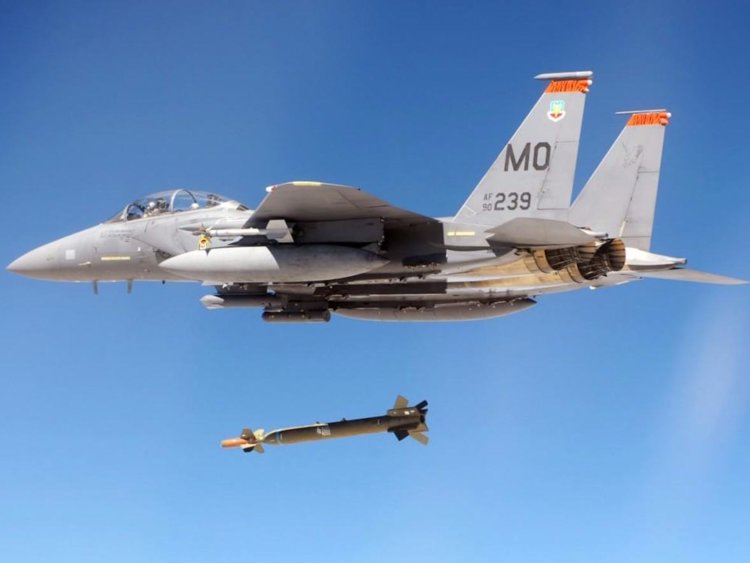The F-15E fighter bombers refueled 12 times during the historic “Crockett 51/52s” flight, each time extending their loiter time by 60 to 90 minutes
The ultimate multi-role fighter in the West is the F-15E Strike Eagle. From Desert Shield to Iraqi Freedom, it has been at the heart of every combat in which the USAF has been engaged since 1990. It not only consistently hit targets that no other Coalition, NATO, or US fighter could reach, but it also set records for mission endurance and effectiveness.
F-15Es from the 391st FS/366th Air Expeditionary Wing (AEW), located in Mountain Home, were sent to Kuwait for Operation Enduring Freedom (OEF) in the wake of the terrorist attacks on September 11, 2001, in New York and Washington, DC. Four crew members from the unit made history during their three-month service when they completed the longest fighter combat sortie ever (no exact date for this mission has ever been released by the USAF).
“Crockett 51/52,” a two-ship F-15E mission, was tasked with patrolling a set of grid coordinates over Afghanistan for the customary “vulnerability” duration of three hours. Of the 15.5 hours, nine were spent over the target.
Slokes and Snitch, a pilot and a WSO, were in the lead jet, and Spear and Buzzer were the crew on No 2. Nine GBU-12s, two AIM-9Ms, two AIM-120Cs, and two wing fuel tanks were all carried by each F-15E. When “Crockett” flight arrived on station, AWACS sent a TST instructing it to get in touch with a Predator UAV control unit. The latter had been keeping an eye out for unusual behavior near structures thought to be Taliban command and control centers.
‘Spear’ recalled in Steve Davies’ book F-15E Strike Eagle Units in Combat 1990-2005;
‘Each jet set up two different laser codes— No 1 had 1511 on the left CFT and 1533 on the right and No 2 had 1522 on the left and 1544 on the right. The lead pilot released four GBU-12s from his jet, giving us two with the 1511 laser code and two with 1533. We programmed in 1533 on our laser so that we could guide two of their bombs and they had 1511 dialed in on theirs so that they could guide two of ours. This way we took out two buildings, side-by-side, with simultaneous impacts for eight GBU-12s. We actually flew two passes — the first to ensure that we had the correct targets and the second to actually drop the weapons.’
Both targets were effectively neutralized. One AAA piece had been firing at the flight during this operation, and it too would have been attacked if the battery hadn’t stopped firing at them and the F-15E crews hadn’t been able to find it. After a second Predator tasking, another structure was struck and destroyed. The “Crockett” flight continued with a road reconnaissance after making a call to the FAC for assistance in identifying some vehicles that he had seen.
The flight was unable to identify the precise nature of the traffic, but it soon encountered a Taliban roadblock in the mountains and quickly cleared it. The airplane was getting fuel for their way home after multiple air refuelings when AWACS contacted and requested that they make another contact with Predator. They were given a third building, and each jet rippled two GBU-12s into it. The building, which was immediately struck and destroyed, was thought to be housing Taliban members.
No less than 12 refuelings occurred during the historic “Crockett 51/52s” flight, each of which extended the planes’ loiter time by 60 to 90 minutes. In terms of weapon effects achieved and weapon delivery precision, the mission had been a resounding success. Despite the remarkable length of the sortie, “Spear” appeared more impressed that his backside could still hurt a week later!

F-15E Strike Eagle Units in Combat 1990-2005 is published by Osprey Publishing and is available to order here.
Photo by U.S. Air Force

